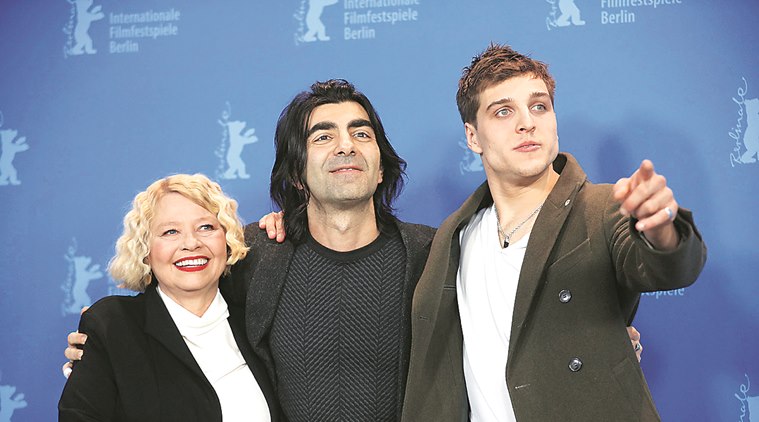
At the end of Fatih Akin’s visceral, brutal and sometimes shockingly comical portrait of a serial killer, The Golden Glove, you are left in a state of befuddlement. The life, or what passes for one, of a man so twisted that he can find a kind of release only when he dismembers women, can be repulsive yet fascinating. Akin’s film gives us plenty of blood, and a vivid setting, but doesn’t tell us what goes on inside the heart and mind of a killer.
You can counter that thought by saying that psychopaths are so opaque that even their mothers can’t tell what’s going on inside of them. But when you invite us to sit through a nearly two-hour orgy of blood-lust and depravity, we need a pay-off. That’s what missing in this Berlinale favourite’s latest, and I found myself tuning off, not because of the gore on display, but because I wanted to know more about this man: did his unprepossessing features (he has bulging eyes, a droopy hook for a nose, and a hunch) lead to being rebuffed by women, and did that in turn lead him to turn on them for revenge? Was it more?
The film is set in the Hamburg of the 70s, and based on the real-life case of serial killer Fritz Honka. The pub where Honka (played with scary efficacy by Jonas Dassler) hangs out, and picks up his victims — past-their-prime elderly prostitutes — is called The Golden Glove. It is one of the film’s not-so-funny jokes, as there’s nothing golden about the watering hole where those with nothing better to do come to pass their time. It is of a piece with the air fresheners that Honka tosses in to the hole in the wall in his apartment to keep the smell of rotting human flesh at bay.
The Akin film was the third in the day for me, the first two being Hans Petter Moland’s Out Stealing Horses, about old memories and lives, and Marie Kreutzer’s The Ground Beneath Her Feet, about a woman in search of meaning, neither of which were truly satisfying.
Lola is a hard-nosed professional who keeps her personal and private life so separate that even her lover has no idea that she, Lola, has a sister who has schizophrenia, and has attempted suicide several times in the past. Lola’s apartment looks like a hotel room, so devoid is it of personal touches. Her work is her life, and when a fresh conflict arises from the sister’s front, and there is a betrayal from her girl-friend’s end, Lola is left floundering. As are we, because there’s not enough made of the connections between a worn-out woman in an institution and what keeps her there to her sibling, togged out in the latest designer shoes, struggling to keep it together after a grueling 48-hour shift.
That women are bound to the ground beneath their feet, whichever part of the world they may be in, and whatever their situations are, is not a very new idea. And there’s not that much that’s startlingly new in The Ground Beneath Her Feet, apart from the very effective performance from Valerie Pachner as the very held-in, very clenched Lola, who is also spiralling out of control.
Out Stealing Horses has so much scenery and texture, falling snow, rushing rivers, and rugged log cabins, that you nearly forget to look at the humans at the centre of the story. Stellan Skarsgard’s craggy face recalls the memories of childhood, and for a time it holds, but the film goes on for too long.
That feeling of having finally lucked into a marvelous film came with Ondog. It opens with one of most stunning vistas I’ve seen in a long while: across the vast Mongolian steppes, awash with the changing colour of the skies, lies a naked female body. The murder is not the focal point, though. It’s just a device to allow director Wang Quan’an to gently explore human relationships.
You cannot watch this gorgeous film on Netflix. This has to be a big screen experience. It’s pure, dazzling cinema.